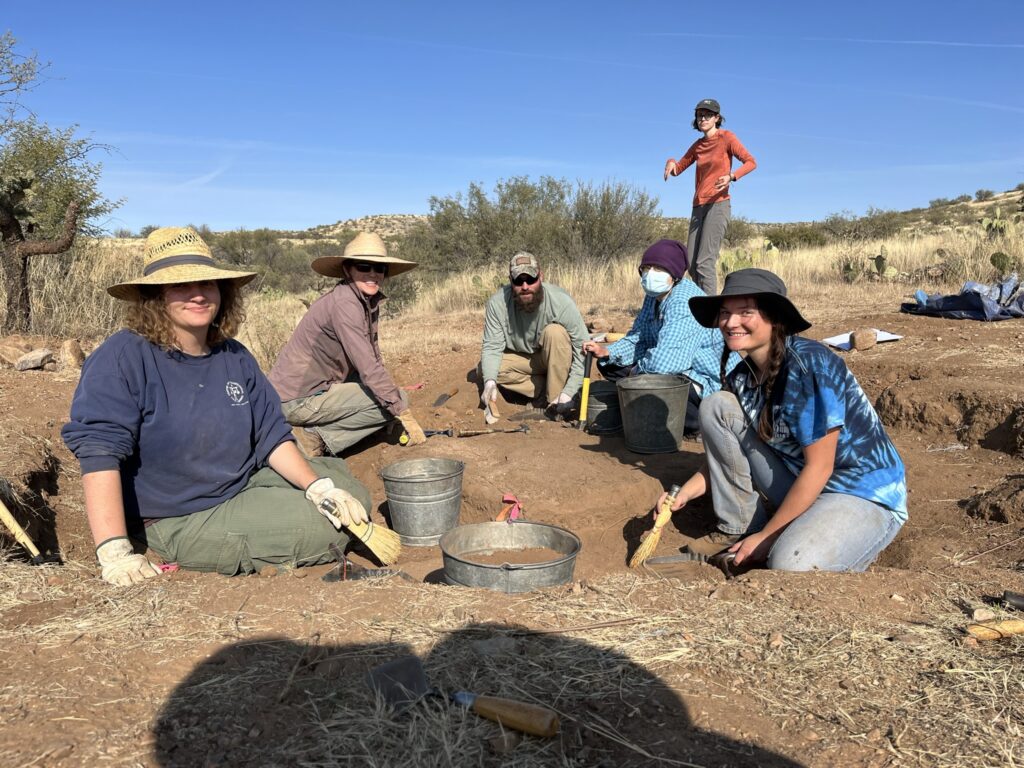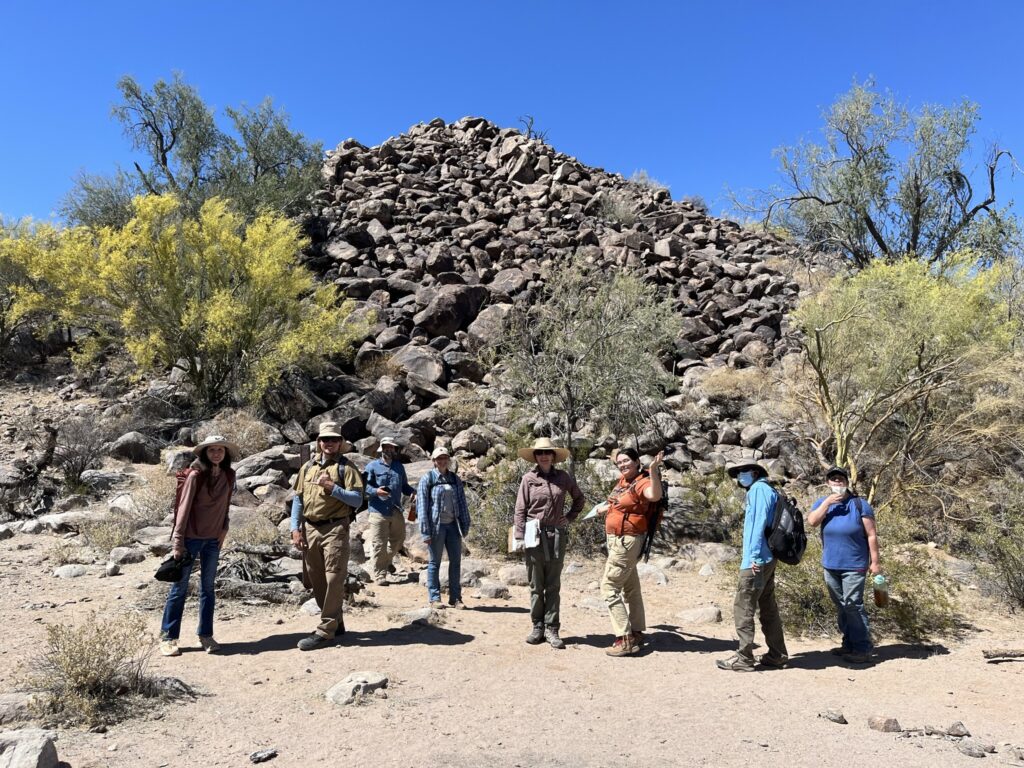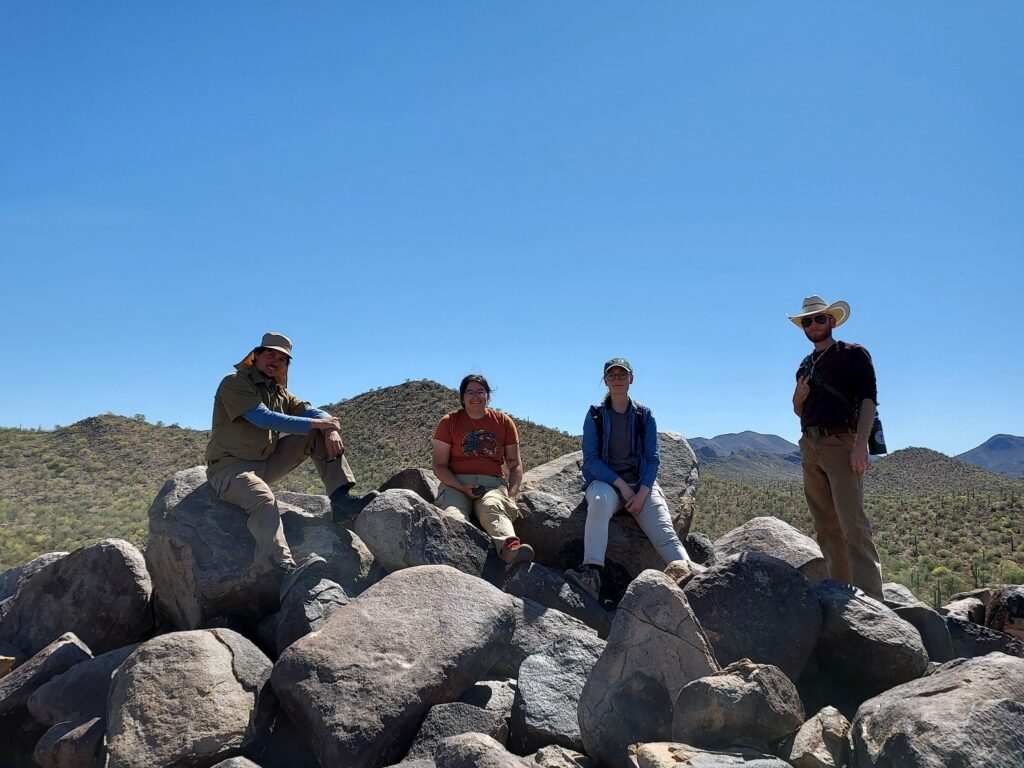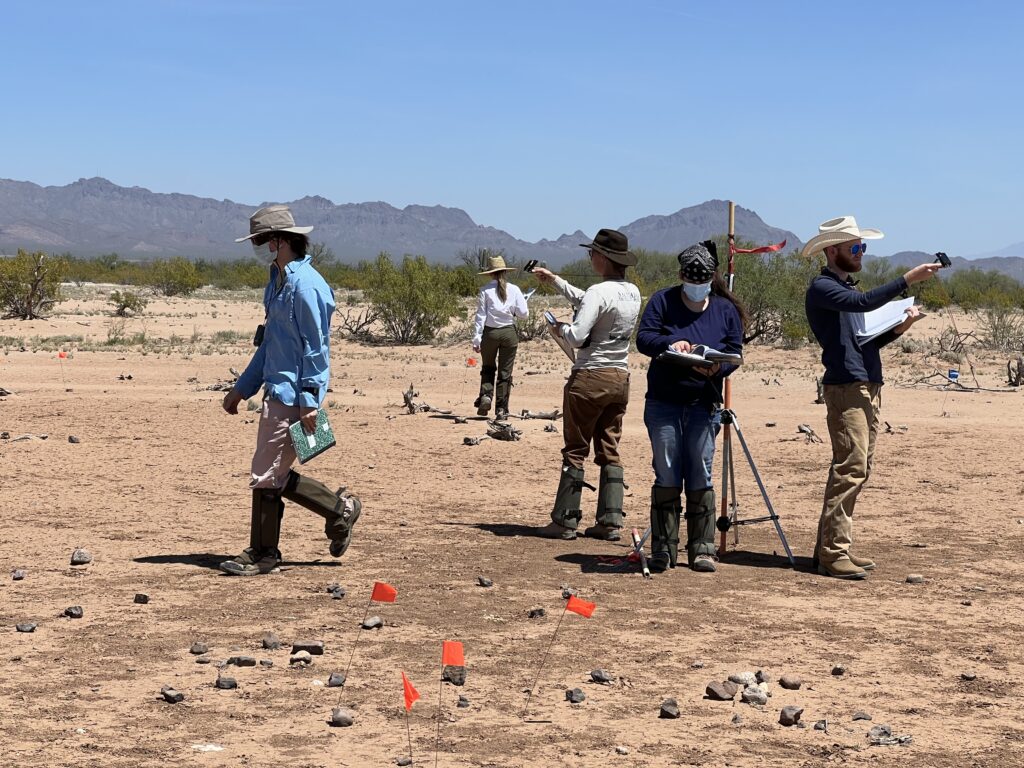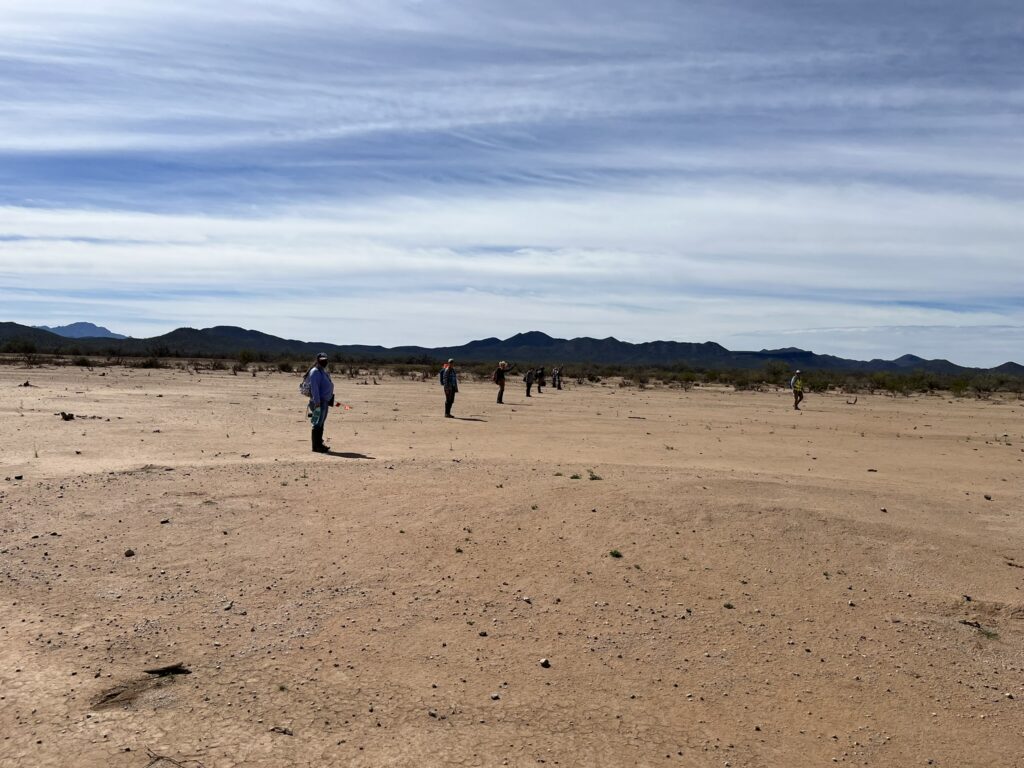By JENNIFER LANE
Pima Post
For the first time in the history of Pima Community College, archaeology students recently searched for artifacts on Pascua Yaqui Tribe’s ranch land.
The students did this in the Archaeological Surveying II (ARC 278) class taught by instructor Mary Prasciunas.
“Students gain field experience by working at real archaeological sites in Southern Arizona,” she said. “The ultimate goal is to prepare students for jobs in cultural resource management.
“Students are looking for any evidence of past human occupation of the landscape, both in the form of artifacts (items made or modified by humans in the past) and features (things like roasting pits or living structures),” she added.
Jim Bender, a student who took the Surveying II class in Spring, described a pedestrian survey which is primarily the technique they used to find artifacts.
Students would walk in straight lines across a specific piece of land crisscrossed by flood plains.
“I believe the term is braided wash,” Bender said.
The members of the class would spread out 10 to 15 meters apart and walk south to north and then north to south across parcels that were larger than 40 acres.
“On these we would record the location of any artifacts that we found and, if enough were found in a small area, determine that there was a site at that location,” he said.
“The first thing that I learned was that even though the land is fairly flat, walking through heavy brush is very strenuous.”
He also described the reward of the search.
“I did feel like a real archaeologist.”
Prasciunas and other staff make sure students understand the objectives for the day, and then they give students independence to conduct surveys and record the findings on their own.
“Whenever one of us would find something, we would congregate at that spot and search the vicinity for more artifacts,” Bender said.
“We would almost always find some behind us in a place that we had just passed over,” he said. “GPS, Trimble units, and drones have improved things, but archaeology is not an exact science. It still depends quite a bit on human eyes.”
PCC’s Centre for Archaeological Field Training and the Pascua Yaqui Tribe recently have come to an agreement that benefits both sides.
Students gain real-life archaeological skills by searching for artifacts on the tribe’s land. In exchange, they map out where they find the artifacts and the tribe can determine what to do with the findings and determine how to use the land where artifacts have been located.
Prasciunas said that she teaches her “students that the artifacts cannot be disturbed or moved from their location because they will lose their archaeological meaning, or ‘context.’ ”
Understanding where artifacts come from is critical to understanding how people may have used them in the past, which is a fundamental goal of archaeology,” she said. “The Pascua Yaqui Tribe also wishes for artifacts and sites to be protected and remain undisturbed.”
Student findings are reported to Karl A. Hoerig, Ph.D., the first ever Tribal Historic Preservation Officer of the Pascua Yaqui Tribe.
“The partnership is extremely valuable for the tribe because the data recorded and reported by the students helps us to plan for the protection of the Tribe’s archaeological resources into the future,” Hoerig said.
For a thousand years, Hoerig said that ancestors have been part of the social fabric of the Sonoran Desert region and the surrounding uplands. He said that history has been passed down through the oral traditions of communities along the Santa Cruz River for hundreds of years.
“During the colonial period, mission records from the area that now includes Southern Arizona and northern Sonora count Yaqui as second only in number to the O’odham,” he said.
On the lands where PCC students excavate, generations of Pascua Yaqui history can be discovered.
After the spring semester, Hoerig said that students have surveyed about 400 of the 6,400-ranch land acreage.
On May 15, at the Northwest Campus, PCC awarded to the Centre for Archaeological Field Training the Educational Leadership in Diversity and Inclusion Award for its work with the Pascua Yaqui Tribe.
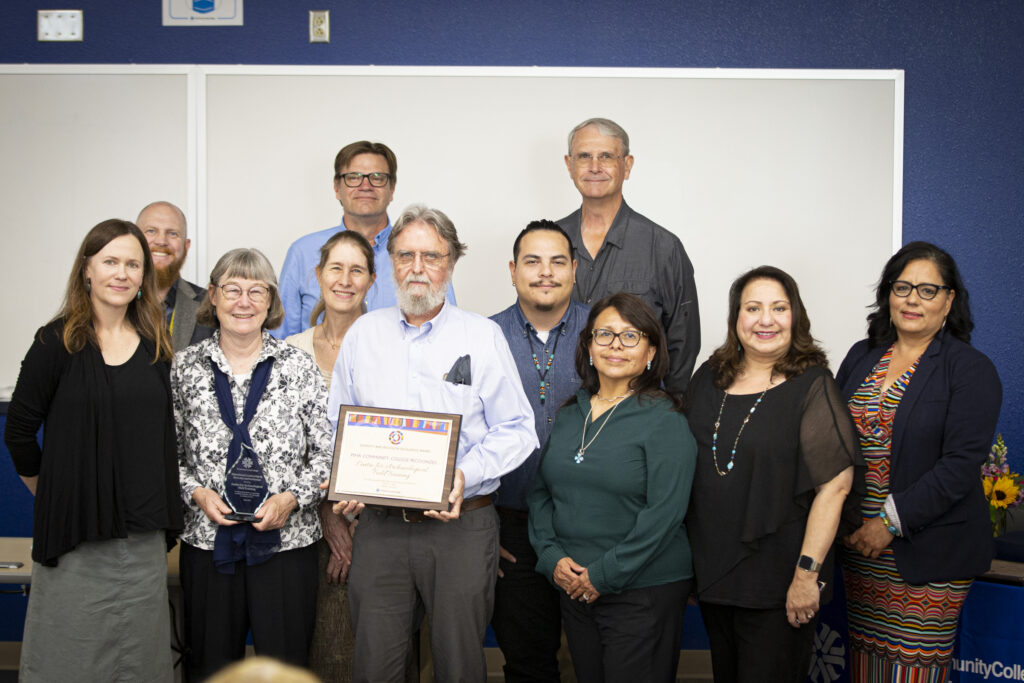
Campus Vice President of Northwest Campus, Dr. Brian Stewart, said they had many applicants.
The committee selected the Center for Archaeological Field Training because they are “building a bridge that provides the opportunity for cultures to connect and learn about each other,” Stewart said.

